Two part programme in Psychedelic-assisted Acceptance and Commitment Therapy
£4,100.00
Part – 1
Expanded ACT for Psychedelic-assisted Therapy: Integrating trauma-focused ‘parts’ work with systemic change
2026 Dates:
- Online: 19-20th Feb
- New Haven, Connecticut: 2-6th March
- with 3months fortnightly supervision
Places are limited to 20 (Book early to avoid disappointment)
Location:
At Centred Offices, New Haven Connecticut + 2 days preparatory training online. 1pm-9pm BST
Contribution:
£2400
Facilitators:
Lead by Henry Whitfield
with support from colleagues
Dr. Robert Krause
and
Dr. Mark Landreneau
A two + five day training experience to learn a new integral model of psychedelic-assisted therapy
This training captures the ‘sweet spot’ between ACT, IFS and TIR, tailored to a wide range of psychedelic therapy challenges (see https://www.frontiersin.org/articles/10.3389/fpsyt.2021.727572/full) to enable a trauma-focussed ACT-consistent approach to psychedelic-assisted therapy.
Informed with high-density data collected from over 50 participants attending our retreats (a study designed to reduce relapse and deepen gains in psychedelic-assisted therapy), this training highlights what we know has been helpful in producing stable psychedelic therapy gains (post 6-12 months). It integrates parts work (including Internal Family Systems perspectives) and Traumatic Incident Reduction with ACT as a core theoretical modal, to offer versatile, multi-modal framework, including a broad pallet of varying degrees of directive/non-directiveness. Using such a pallet context-sensitively, we can resolve the directive/non-directive debate.
TIR is a precise imaginal exposure methodology with supporting repetitive focusing protocols that can be adapted to amplify all ACT processes such as: awareness of the cues and motivations for any behaviour, directing presence/undivided awareness to any inner experience, intensifying client-led willingness to face challenging feelings, defusion/disentangling from any unhelpful habitual thinking, awareness of the function of any self-story or role.
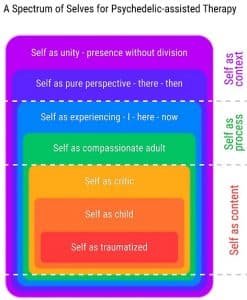
ACT brings the overarching framework of evolutionary and behavioural science principles, as well as a shortcut to accessing hidden fears. Within this framework, TIR and IFS offer additional ‘vehicles’ for implementing Contextual Behavioural Science principles thoroughly and compassionately.
You will learn multiple interventions that align precisely with the Spectrum of Selves as described in Henry’s recent publication in Frontiers in Psychiatry, adapted throughout the three phases of Psychedelic-assisted therapy.
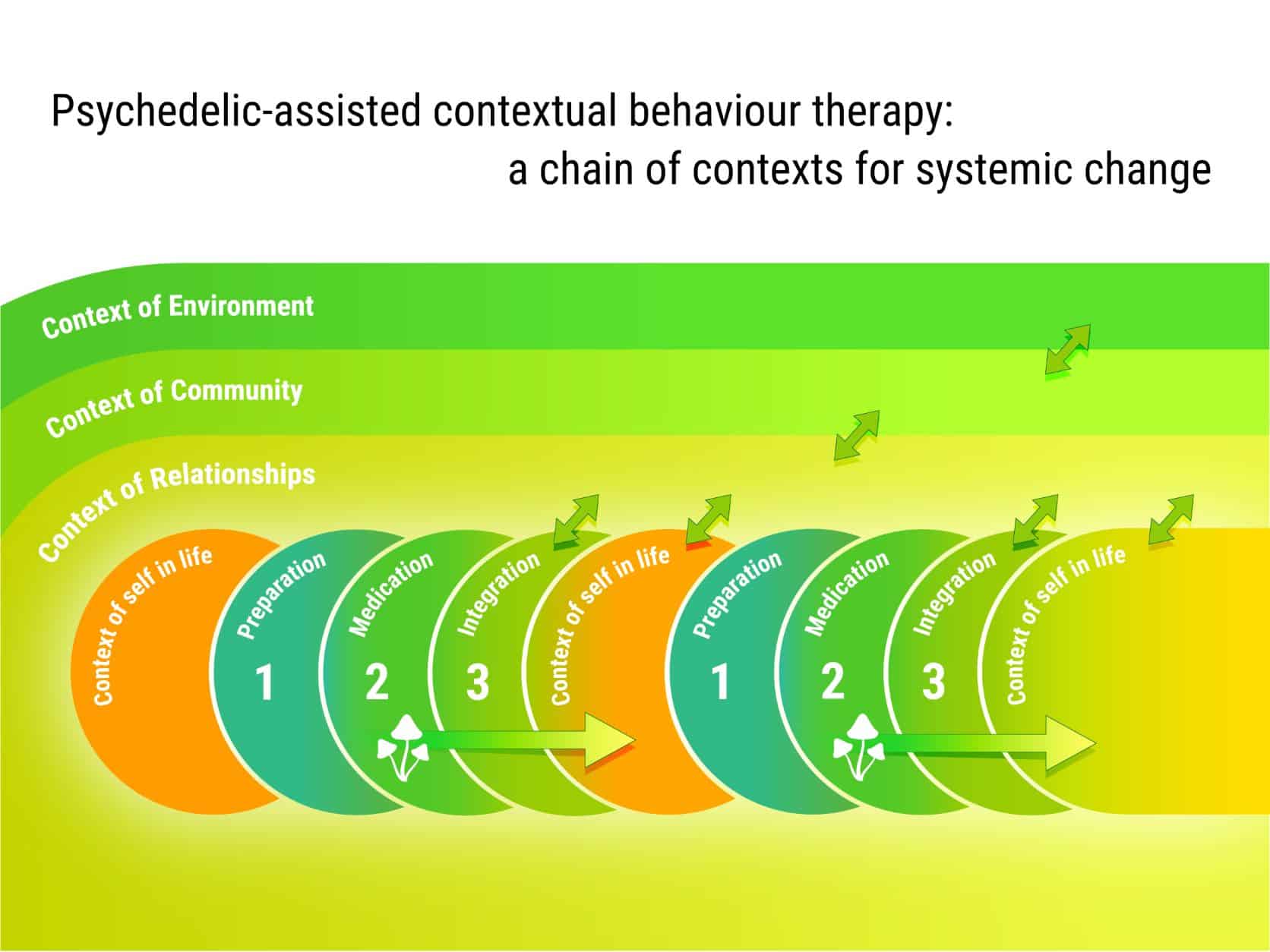
Programme overview
Days 1-2 (online Feb 19-20th*, 1 pm – 9 pm GMT): Engineering a new psychedelic therapy of the future. TIR for re-accessing and processing psychedelic experiences and related traumatic memories. * Other online options for this session may be available.
Invitation to exchange sessions with peers before arriving in Spain.
In New Haven (2-6th March) 9:30- 6pm. Lunch included.
Days 3-4: ACT and the Spectrum of Selves – from shame to the ‘reverse compass’ for accessing our deeper fears, exploring the voices and behaviours of our different parts. Understanding the ACT core processes from a ‘parts’ point of view.
Day 5: Inner work aligned with outer systemic behaviour change. Getting ready to bring the barriers into the work.
Days 6-7: Practicum of ACT expanded with trauma and parts work through the three phases of psychedelic therapy. Your chance to practice with feedback the protocols and principles that you personally need the most feedback on.
Monthly supervision included for 3months
With insight and support from
Rob Krause was a co-therapist and co-facilitator during the development of this approach, gave input on peak states to the Spectrum of Selves paper and will share his perspectives as well as his professional and research experience with psychedelics
The curriculum includes:
- A 150 page bound manual to support you during and after the training.
- This training includes methods from TIR, a structured approach to Trauma/PTSD comparable to EMDR in its thoroughness, yet more precise and consistent with mindfulness and ACT.
- ACT-informed Parts work to address inner conflict between your different selves
- A protocol for differentiating between healthy and unhealthy self-story/narcissism
- A protocol for processing intense psychedelic experiences and re-accessing perspectives and insights from the trip.
- Expanding and reinforcing new behavioural repertoires that flow from newly gained perspectives – seamlessly interconnecting the three phases of psychedelic therapy.
- Overcoming complex/long-term trauma (often more accessible post psychedelic)
- Working Somato-cognitively – reawakening feeling in the body
- Mapping and reinforcing systemic change.
- Predictors of long-lasting benefits in psychedelic therapy and how to implement them.
- ‘Inner healing intelligence’ versus varying degrees of person-centredness/ active-directiveness (and when to do which)
- Parts work for malevolent and benevolent parts/entities
- A defusion protocol for when the mind gets in the way during a dosing session.
- Shame work as a shortcut to our deeper self-concept issues
- Perspective switching exercise for transcending the polarities of the mind
- Behaviour change coaching for increasing alignment in a person’s life.
Part – 2
Psychedelic Retreat informed by Acceptance and Commitment Therapy, with one-to-one follow up integration
Location:
Near Barcelona, Spain
2026 Dates:
- 15-19th June
Contribution:
- £2300 (accommodation and meals included, excluding cost of psilocybin truffles
- Contact us for concessionary fees
Facilitators:
Henry Whitfield, Robert Krause, Karlie Shelley, & Margo Fisher
The purpose of this retreat is to prepare and connect those interested in this field as well as to experience first hand what a focussed ACT-informed psychedelic therapy is like.
 The Programme: This four and a half day retreat + two month (average length) integration programme consists of:
The Programme: This four and a half day retreat + two month (average length) integration programme consists of:
Day 1: Arrival (in the afternoon) and preparation: approaching the psychedelic experience as an opportunity for personal growth, leaning into challenging emotions and opening to a flexible sense of self.
All are welcome to use the sauna
Day 2: Self-as-context meditation breath and bodywork – you are not your programming. Afternoon ceremony with Psilocybin Truffles, you embark on your psychedelic journey with the support of sober mental health professionals and a “reverse compass” to help you open up to any challenges.
Day 3: Integration through verbal and nonverbal expression. Allow your more vulnerable selves to emerge during relational group work. Safely access your more avoidant personality structures and connect in our common humanity.
Day 4: A scale of selves or ‘parts’ to integrate: fostering a transcendent self. Increasing willingness and noticing the barriers of mind. Breathwork preparation for the second psychedelic ceremony – an opportunity to go deeper.
Day 5: Further integration – Is any of your inner or outer behaviour changing? What new paths do you feel invited to follow? Is a new view emerging of the kind of life you want to live? Balancing the head with the heart: Awareness practices coupled with intending a new alignment in your life.
Each day will include experiential practices to help us get into our direct experiencing. Through sharing circles we will learn from each other.
Integration therapy: Then each participant is then offered four 60-90min integration sessions via zoom. These sessions further support the unfolding of awareness that opened during the retreat and help translate this awareness into multiple domains of your life. It may also be a critical learning period to take advantage of. Our current integration model brings together evolutionary science, ACT and ‘parts work’ in psychedelic context as described in Henry’s Spectrum of Selves publication, integrating behaviour change to find a new balance between self-care, relationships, community and environment.
In preparation you may consider your personal challenges in terms of ‘willingness’ (how open are you to certain discomforts?), ‘experiential avoidance’ (what are the obvious or subtle ways you avoid those inner discomforts?), your motivations (what impulses behind your inner and outer behaviours are keeping you from what you truly want). Simple metaphors such as the ‘reverse compass’ may guide us on our way: where is your mind telling you not to go? Preparatory work suggested a from a month before the retreat.
To integrate your psilocybin experience into a life better lived, you may also consider if your old thought patterns take you where you really want to go. What new behaviours do our insights invite? How might our old patterns get in the way of what we really want?
As well as offering these latter perspectives, the ACT model also invites its own integration with other models and traditions, into a behaviourally aware eclecticism. Some of these modalities of integration include breathwork, art therapy, shame work and Internal Family Systems therapy.
Minimum facilitator ratio: one to every 3.5 participants minimum. Each participant will also receive one-on-one pre, between and post-ceremony check-ins.
Spaces are highly limited to a maximum of 14.
About our facilitators
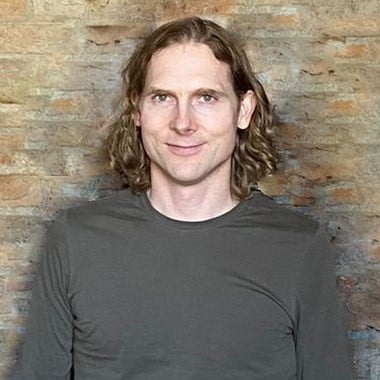
Henry J. Whitfield
Henry Whitfield is an Association of Contextual Behavioural Science (ACBS) Peer-reviewed Acceptance and Commitment Therapy trainer, an Accredited Advanced TIR (PTSD therapy) Trainer and Cognitive Behavioural Psychotherapist (MSc – CBT) He is now in the final stages of a PhD in psychedelic-assisted Acceptance and Commitment therapy, looking at interactions between psilocybin experiences and therapeutic processes during and after psilocybin.
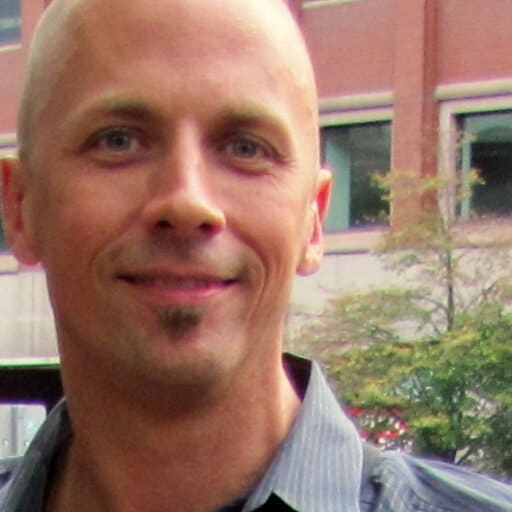
Dr Robert Krause
Robert Krause, DNP APRN-BC is a doctor of nursing practice and is a clinical specialist in psychiatric and mental health nursing. He is currently Visiting Faculty at The Graduate Institute where he is teaching a course in Mind-Body Medicine. For twenty years Robert was a Lecturer in Psychiatry at Yale University in the schools of Nursing and Medicine.
He has lectured in philosophy at Quinnipiac University and at Western Connecticut State University. Robert has certifications in Global Mental Health: Trauma and Recovery from Harvard University, in Psychedelic-Assisted Psychotherapies and Research from the California Institute of Integral Studies (CIIS) and in Sex therapy also from the CIIS. He was a faculty advisor to the Yale Psychedelic Research Group and is currently the lead therapist and co-author of the treatment manual for the Psilocybin – Induced Neuroplasticity in the Treatment of Major Depressive Disorder at the Yale School of Medicine. He is also a co-author of the recently published ‘Psilocybin-assisted therapy of major depressive disorder using Acceptance and Commitment Therapy as a therapeutic frame’ Journal of Contextual Behavioral Science 15 (2020): 12-19.
Robert’s daily practices include yoga, meditation and tantra. He completed yoga instructor training with Aum Pradesh Guar in Goa, India and was certified in tantra instruction through the Urban Tantra Professional Training Program. He has been practicing zazen meditation for 30 years.
Currently Robert maintains a private integrative psychotherapy practice in New Haven, Connecticut.
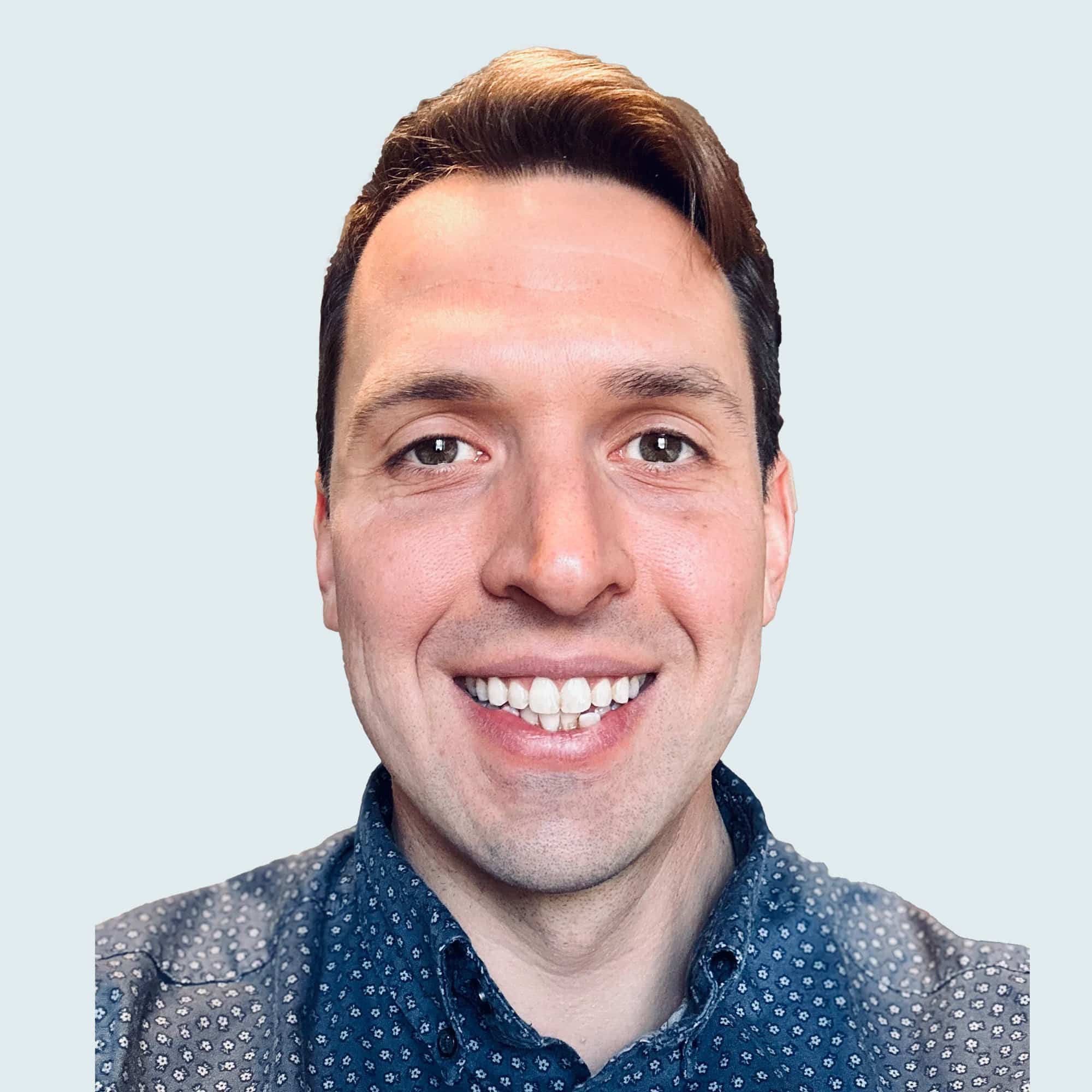
Dr. Mark Landreneau
Mark Landreneau received his MD from Columbia University College of Physician and Surgeons and subsequently completed a neurology residency and neurocritical care fellowship at Yale-New Haven Hospital. He has worked as faculty in the department of neurology at Yale University and now maintains a practice at Centered focusing on neuropsychiatric disorders in addition to his neurohospitalist practice at Yale.
He has significant experience and skill treating life threatening injuries of the nervous system including brain injuries that cause disorders of consciousness. He has written multiple articles and book chapters on severe strokes, brain death, and novel treatments for brain and spinal injuries. Over time he developed a particular interest in mood disorders related to neurological illness as well as mood disorders more generally, particularly in the context of neuroplastogens and psychedelics.
He brings a background using multimodal monitoring in the ICU–integrating noninvasive and invasive monitoring such as EEG, advanced neuroimaging, and novel neurophysiological monitors. Using insights from recent clinical trials and basic science studies on psychedelics, he has a deep interest in integrating the neurophysiology of psychedelics with psychotherapy in order to maximize treatment effects from this powerful class of medications.
At the moment, his focus is on ketamine assisted therapy, learning and integrating cutting edge developments in the field into his practice. His approach is informed by an emerging neuroscientific model of circuits and networks, viewing this as inseparable from subjective experience, where humanistic traditions have studied the mind for thousands of years.

Margo Fisher
Margo has a depth of experience as a psychedelic guide. A particular area of expertise is early childhood trauma, holding a safe space as clients connect with their young selves. She has guided on psilocybin clinical trials at the Centre for Psychedelic Research at Imperial College, currently guiding on a trial relating to addiction. She is also a psychotherapeutic counsellor, adept at helping clients integrate their psychedelic experiences. It brings her joy to facilitate individual and group spaces that offer the opportunity to heal, integrate and expand. Margo has built a friendship with unknowing, embodiment, vulnerability, wholeness and reverence over time; these have helped her to be and stay present.
Previously a qualitative researcher focused on human rights in the global South, she now uses her research skills to capture the lived experiences of those participating in psychedelic clinical trials. Margo lives on a farm with her partner in south west England, is a mother of an adult daughter and is gently becoming an elder.